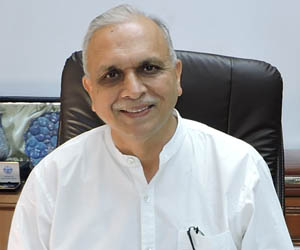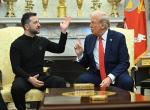In a hard hitting speech on Friday the 13 October, 2017, President Trump announced that he would not certify to the Congress that the Joint Comprehensive Plan of Action (JCPOA) signed with Iran is in US’ national security interest. He accused Iran of violating the JCPOA which is being monitored and verified by the International Atomic Energy Agency (IAEA) since January 2016. The IAEA in its seven quarterly reports has not suggested any violation of the agreement by Iran. However, several US think tanks have been skeptical about IAEA’s reports.
The President’s decision has created huge uncertainty about the survival of JCPOA, also known as the Iran Nuclear Deal, which is an international agreement concluded by P-5 and Germany with Iran in 2015 after years of negotiations. Trump had often said publicly that the deal was highly flawed – its inspection regime was weak; Iran had violated the agreement; lifting of sanctions had rewarded Iran’s bad behavior etc. He announced that the US will also impose fresh sanctions on Iran’s Islamic Revolutionary Guard Corps (IRGC). According to US law, the US president is required to certify every three months that the deal is in US national interest. Trump administration has already certified so on last two occasions. This time around however, Trump has overruled key cabinet colleagues and gone ahead to ‘decertify’ Iran. Trump’s aversion to Iran and the nuclear deal is no secret. He has on several occasions called to the deal the worst ever.
The question is whether Trump has factored in the consequences of the unravelling of JCPOA. Decertification does not automatically end the agreement. The ball is now in the Congress’ court. Trump has threatened that if Congress does not fall in line he will cancel the deal under his own powers. If the US congress reimposes sanctions on Iran, the Iranians may walk out of the deal and restart their nuclear program. Iranian leaders have condemned the US President’s rhetoric but indicated that Iran will continue to stick to its commitments for the time being. Thus Iran will be in wait and watch mode. President Rouhani may come under pressure from Iranian hardliners who were opposed to the signing of the deal in the first place. Thus, a renewed tussle between Rouhani who won an election a few months ago and the hardliners may ensue.
The US is not the only party to JCPOA. There are others signatories too. They have all opposed the US action. There may be a situation where the US reimposes sanctions but the others do not. The US will find it difficult to have a resolution in the UN Security Council imposing sanctions on Iran as there has been no violation reported. Russians and Chinese who have good relations with Iran may not follow the US lead. European Union companies are eyeing several projects in Iran.
The fresh crisis in US-Iran relations comes at a time when the North Korean nuclear issue is assuming grave proportions with every passing day. The US has opened up yet another front with Iran. All this has been done for domestic reasons rather than any external compulsions. Iran will now become a huge domestic issue. US legislators now have sixty days to decide on the future course of action. If the Congress does not agree with Trump, he has threatened to pull out of the agreement anyway.
IAEA has also been brought under controversy. Was it doing its job professionally? Some analysts have accused IAEA of giving scant information about Iran’s compliance of JCPOA and described its reports as politically motivated. The IAEA Director General Yukiya Amano, in a statement given on 13 October 2017, had certified that Iran was implementing its nuclear related commitments under JCPOA. He also said that Iran had been subjected to the “world’s most robust nuclear verification regime”, and that “the IAEA has had access to all locations it needed to visit.”
Since Trump came to power, the US has walked out of the Trans Pacific Partnership (TPP) free trade agreement, the Paris Accord on Climate Change and the UN Educational, Scientific and Cultural Organization (UNESCO). The North American Free Trade Agreement’s (NAFTA) fate too is in balance. Abandoning previously negotiated agreements may raise questions about US’ credibility. The US may also get isolated internationally and cede space to China which is coming up with its own versions of international agreements like the Asian Infrastructure Investment Bank (AIIB) and Belt and Road Initiative (BRI).
For India, the crisis has erupted at an inopportune moment. India will need to ensure that its ties with Iran are not affected by the latest crisis in US foreign policy. India has a flagship project in Iran – the Chabahar Port construction project. If US Congress reimposes sanctions on entities doing business with Iran, Indian companies will be under pressure to cut their links with Iranian businesses and the fate of Chabahar Port will be in jeopardy. However, the Indian line of argument should be that Iran is not violating its commitments under JCPOA and there is no reason why sanctions should be imposed.
Iran’s nuclear programme has been a burning issue of international security. It seemed that JCPOA had brought closure to the Iran nuclear file. All that is set to change.
(The author is the Director of the Vivekananda International Foundation, New Delhi. Earlier he served as Deputy National Security Advisor.)
Image Source: https://southfront.org/uncertainty-around-the-future-of-irans-nuclear-deal/











Post new comment